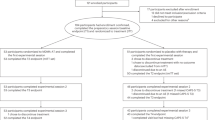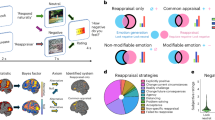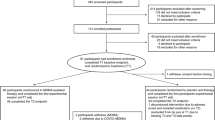Abstract
Research has linked childhood abuse to a plethora of adverse health outcomes in adulthood1,2. However, whether positive experiences in adulthood much beyond cessation of abuse exposure can offset these adverse health risks remains unclear. Using a sample of 6,078 adults from the National Survey of Midlife Development in the United States (MIDUS), we examined whether adult self-reported social support decreased mortality risk associated with self-reported exposure to three types of childhood abuse: severe physical abuse, modest physical abuse and emotional abuse. Greater self-reported social support was related to reduced mortality risk; however, this relation was qualified by exposure to childhood abuse. For each type of abuse, self-reported social support was linked to a larger reduction in mortality risk among individuals reporting childhood abuse compared with those reporting minimal or no exposure to abuse. These findings suggest that supportive relationships in midlife can partly offset the mortality risks that seem to be set in motion by childhood experiences of abuse.
This is a preview of subscription content, access via your institution
Access options
Access Nature and 54 other Nature Portfolio journals
Get Nature+, our best-value online-access subscription
$29.99 / 30 days
cancel any time
Subscribe to this journal
Receive 12 digital issues and online access to articles
$119.00 per year
only $9.92 per issue
Buy this article
- Purchase on Springer Link
- Instant access to full article PDF
Prices may be subject to local taxes which are calculated during checkout
Similar content being viewed by others
References
Norman, R. E. et al. The long-term health consequences of child physical abuse, emotional abuse, and neglect: a systematic review and meta-analysis. PLoS Med. 9, e1001349 (2012).
Wegman, H. L. & Stetler, C. A meta-analytic review of the effects of childhood abuse on medical outcomes in adulthood. Psychosom. Med. 71, 805–812 (2009).
Finkelhor, D., Turner, H. A., Shattuck, A. & Hamby, S. L. Prevalence of childhood exposure to violence, crime, and abuse: results from the National Survey of Children’s Exposure to Violence. JAMA Pediatr. 169, 746–754 (2015).
Gilbert, L. K. et al. Childhood adversity and adult chronic disease: an update from ten states and the District of Columbia, 2010. Am. J. Prev. Med. 48, 345–349 (2015).
Heim, C., Shugart, M., Craighead, W. E. & Nemeroff, C. B. Neurobiological and psychiatric consequences of child abuse and neglect. Dev. Psychobiol. 52, 671–690 (2010).
MacMillan, H. L. et al. Childhood abuse and lifetime psychopathology in a community sample. Am. J. Psychiatry 158, 1878–1883 (2001).
Chen, E., Turiano, N. A., Mroczek, D. K. & Miller, G. E. Association of reports of childhood abuse and all-cause mortality rates in women. JAMA Psychiatry 73, 920–927 (2016).
Holman, D. M. et al. The association between adverse childhood experiences and risk of cancer in adulthood: a systematic review of the literature. Pediatrics 138, S81–S91 (2016).
Davidson, R. J. & McEwen, B. S. Social influences on neuroplasticity: stress and interventions to promote well-being. Nat. Neurosci. 15, 689–695 (2012).
Luecken, L. J., Hagan, M. J., Wolchik, S. A., Sandler, I. N. & Tein, J. Y. A longitudinal study of the effects of child-reported maternal warmth on cortisol stress response 15 years after parental divorce. Psychosom. Med. 78, 163–170 (2016).
Chen, E., Miller, G. E., Kobor, M. S. & Cole, S. W. Maternal warmth buffers the effects of low early-life socioeconomic status on pro-inflammatory signaling in adulthood. Mol. Psychiatry 16, 729–737 (2011).
Evans, G. W., Kim, P., Ting, A. H., Tesher, H. B. & Shannis, D. Cumulative risk, maternal responsiveness, and allostatic load among young adolescents. Dev. Psychol. 43, 341–351 (2007).
Miller, G. E. et al. Pathways to resilience: maternal nurturance as a buffer against the effects of childhood poverty on metabolic syndrome at midlife. Psychol. Sci. 22, 1591–1599 (2011).
Schofield, T. J., Conger, R. D., Gonzales, J. E. & Merrick, M. T. Harsh parenting, physical health, and the protective role of positive parent-adolescent relationships. Soc. Sci. Med. 157, 18–26 (2016).
Carroll, J. E. et al. Childhood abuse, parental warmth, and adult multisystem biological risk in the Coronary Artery Risk Development in Young Adults study. Proc. Natl Acad. Sci. USA 110, 17149–17153 (2013).
Lett, H. S. et al. Social support and coronary heart disease: epidemiologic evidence and implications for treatment. Psychosom. Med. 67, 869–878 (2005).
Shor, E., Roelfs, D. J. & Yogev, T. The strength of family ties: a meta-analysis and meta-regression of self-reported social support and mortality. Soc. Netw. 35, 626–638 (2013).
Bublitz, M. H., Parade, S. & Stroud, L. R. The effects of childhood sexual abuse on cortisol trajectories in pregnancy are moderated by current family functioning. Biol. Psychol. 103, 152–157 (2014).
Koe, A. S., Ashokan, A. & Mitra, R. Short environmental enrichment in adulthood reverses anxiety and basolateral amygdala hypertrophy induced by maternal separation. Transl. Psychiatry 6, e729 (2016).
Bredy, T. W., Zhang, T. Y., Grant, R. J., Diorio, J. & Meaney, M. J. Peripubertal environmental enrichment reverses the effects of maternal care on hippocampal development and glutamate receptor subunit expression. Eur. J. Neurosci. 20, 1355–1362 (2004).
Kuhlman, K. R., Chiang, J. J., Horn, S. & Bower, J. E. Developmental psychoneuroendocrine and psychoneuroimmune pathways from childhood adversity to disease. Neurosci. Biobehav. Rev. 80, 166–184 (2017).
Slopen, N., McLaughlin, K. A., Dunn, E. C. & Koenen, K. C. Childhood adversity and cell-mediated immunity in young adulthood: does type and timing matter? Brain Behav. Immun. 28, 63–71 (2013).
Hill, P. L. & Turiano, N. A. Purpose in life as a predictor of mortality across adulthood. Psychol. Sci. 25, 1482–1486 (2014).
Turiano, N. A., Chapman, B. P., Agrigoroaei, S., Infurna, F. J. & Lachman, M. E. Perceived control reduces mortality risk at low, not high, education levels. Health Psychol. 33, 883–890 (2014).
Steptoe, A. & Wardle, J. Positive affect measured using ecological momentary assessment and survival in older men and women. Proc. Natl Acad. Sci. USA 108, 18244–18248 (2011).
Cohen, S. & Wills, T. A. Stress, social support, and the buffering hypothesis. Psychol. Bull. 98, 310–357 (1985).
Tajima, E. A., Herrenkohl, T. I., Moylan, C. A. & Derr, A. S. Moderating the effects of childhood exposure to initmate partner violence: the roles of parenting characteristics and adolescent peer support. J. Res. Adolesc. 21, 376–394 (2011).
Muller, R. T., Goebel-Fabbri, A. E., Diamond, T. & Dinklage, D. Social support and the relationship between family and community violence exposure and psychopathology among high risk adolescents. Child Abus. Negl. 24, 449–464 (2000).
Masten, A. S. Resilience in children threatened by extreme adversity: frameworks for research, practice, and translational synergy. Dev. Psychopathol. 23, 493–506 (2011).
Currie, J. & Widom, C. S. Long-term consequences of child abuse and neglect on adult economic well-being. Child Maltreat. 15, 111–120 (2010).
Carr, C. P., Martins, C. M. S., Stingel, A. M., Lemgruber, V. B. & Juruena, M. F. The role of early life stress in adult psychiatric disorders: a systematic review according to childhood trauma subtypes. J. Nerv. Ment. Dis. 201, 1007–1020 (2013).
Chen, E. & Miller, G. E. Socioeconomic status and health: mediating and moderating factors. Annu. Rev. Clin. Psychol. 9, 723–749 (2013).
Kouzis, A., Eaton, W. W. & Leaf, P. J. Psychopathology and mortality in the general population. Soc. Psychiatry Psychiatr. Epidemiol. 30, 165–170 (1995).
Hazel, N. A., Hammen, C., Brennan, P. A. & Najman, J. Early childhood adversity and adolescent depression: the mediating role of continued stress. Psychol. Med. 38, 581–589 (2008).
McLaughlin, K. A., Conron, K. J., Koenen, K. C. & Gilman, S. E. Childhood adversity, adult stressful life events, and risk of past-year psychiatric disorder: a test of the stress sensitization hypothesis in a population-based sample of adults. Psychol. Med. 40, 1647–1658 (2010).
Glaser, J. P., van Os, J., Portegijs, P. J. M. & Myin-Germeys, I. Childhood trauma and emotional reactivity to daily life stress in adult frequent attenders of general practitioners. J. Psychosom. Res. 61, 229–236 (2006).
Chiang, J. J., Turiano, N. A., Mroczek, D. & Miller, G. E. Affective reactivity to daily stress and 20-year mortality risk in adults with chronic illness: findings from the National Study of Daily Experiences. Health Psychol. 37, 170–178 (2018).
Miller, G. E., Chen, E. & Parker, K. J. Psychological stress in childhood and susceptibility to the chronic diseases of aging: moving toward a model of behavioral and biological mechanisms. Psychol. Bull. 137, 959–997 (2011).
Steptoe, A., Wardle, J., Pollard, T. M., Canaan, L. & Davies, G. J. Stress, social support and health-related behavior: a study of smoking, alcohol consumption and physical exercise. J. Psychosom. Res. 41, 171–180 (1996).
Thorsteinsson, E. B. & James, J. E. A meta-analysis of the effects of experimental manipulations of social support during laboratory stress. Psychol. Health 14, 869–886 (1999).
Wang, X., Cai, L., Qian, J. & Peng, J. Social support moderates stress effects on depression. Int. J. Ment. Health Syst. 8, 41–45 (2014).
Cundiff, J. M., Birmingham, W. C., Uchino, B. N. & Smith, T. W. Marital quality buffers the association between socioeconomic status and ambulatory blood pressure. Ann. Behav. Med. 50, 330–335 (2016).
Mills, R., Kisely, S., Alati, R., Strathearn, L. & Najman, J. Self-reported and agency-notified child sexual abuse in a population-based birth cohort. J. Psychiatr. Res. 74, 87–93 (2016).
Hardt, J. & Rutter, M. Validity of adult retrospective reports of adverse childhood experiences: review of the evidence. J. Child Psychol. Psychiatry 45, 260–273 (2004).
Miller, G. E., Brody, G. H., Yu, T. & Chen, E. A family-oriented psychosocial intervention reduces inflammation in low-SES African American youth. Proc. Natl Acad. Sci. USA 111, 11287–11292 (2014).
Straus, M. A., Hamby, S. L., Boney-McCoy, S. & Sugarman, D. B. The revised conflict tactics scales (CTS2): development and preliminary psychometric data. J. Fam. Issues 17, 283–316 (1996).
Goodwin, R. D., Hoven, C. W., Murison, R. & Hotopf, M. Association between childhood physical abuse and gastrointestinal disorders and migraine in adulthood. Am. J. Public Health 93, 1065–1067 (2003).
Damashek, A., Nelson, M. M. & Bonner, B. L. Fatal child maltreatment: characteristics of deaths from physical abuse versus neglect. Child Abus. Negl. 37, 735–744 (2013).
Schuster, T. L., Kessler, R. C. & Aseltine, R. H. Supportive interactions, negative interactions, and depressed mood. Am. J. Community Psychol. 18, 423–438 (1990).
Walen, H. R. & Lachman, M. E. Social support and strain from partner, family, and friends: costs and benefits for men and women in adulthood. J. Soc. Personal. Relat. 17, 5–30 (2000).
Kessler, R. C., Andrews, G., Mroczek, D., Ustun, B. & Wittchen, H. U. The World Health Organization composite international diagnostic interview short‐form (CIDI‐SF). Int. J. Methods Psychiatr. Res. 7, 171–185 (1998).
Diagnostic and Statistical Manual of Mental Health Disorders 3rd edn (American Psychiatric Association, 1987).
Kessler, R. C., Mickelson, K. D. & Williams, D. R. The prevalence, distribution, and mental health correlates of perceived discrimination in the United States.J. Health Soc. Behav. 40, 208–230 (1999).
Pearlin, L. I. & Schooler, C. The structure of coping. J. Health Soc. Behav. 19, 2–21 (1978).
Ryff, C. D. Happiness is everything, or is it? Explorations on the meaning of psychological well-being. J. Personal. Soc. Psychol. 57, 1069–1081 (1989).
Grambsch, P. M. & Therneau, T. M. Proportional hazards tests and diagnostics based on weighted residuals. Biometrika 81, 515–526 (1994).
Bennett, D. A. How can I deal with missing data in my study? Aust. NZ J. Public Health 25, 464–469 (2001).
Acknowledgements
The MIDUS study was supported by the National Institute on Aging (P01-AG020166) and the John D. and Catherine T. MacArthur Foundation Research Network. Authors’ efforts were supported by the National Heart, Lung, and Blood Institute (R01-HL122328 to G.E.M; F32-HL134276 to J.J.C.). The funders had no role in study design, collection and analysis of data, manuscript preparation, or the decision to publish.
Author information
Authors and Affiliations
Contributions
J.J.C. and G.E.M. developed the study concept. J.J.C. conducted data analyses and interpretation under the supervision of G.E.M. J.J.C. and G.E.M. drafted the manuscript, and E.C. provided critical revisions. All authors approved the final version of the manuscript.
Corresponding author
Ethics declarations
Competing interests
The authors declare no competing interests.
Additional information
Publisher’s note: Springer Nature remains neutral with regard to jurisdictional claims in published maps and institutional affiliations.
Supplementary information
Supplementary Information
Supplementary Tables 1–7
Rights and permissions
About this article
Cite this article
Chiang, J.J., Chen, E. & Miller, G.E. Midlife self-reported social support as a buffer against premature mortality risks associated with childhood abuse. Nat Hum Behav 2, 261–268 (2018). https://doi.org/10.1038/s41562-018-0316-5
Received:
Accepted:
Published:
Issue Date:
DOI: https://doi.org/10.1038/s41562-018-0316-5
This article is cited by
-
Parental Emotional Support and Health Problems: The Role of Social Support and Social Strain
Journal of Adult Development (2021)
-
Identifying adverse childhood experiences in pediatrics to prevent chronic health conditions
Pediatric Research (2020)
-
Adult resilience after child abuse
Nature Human Behaviour (2018)



